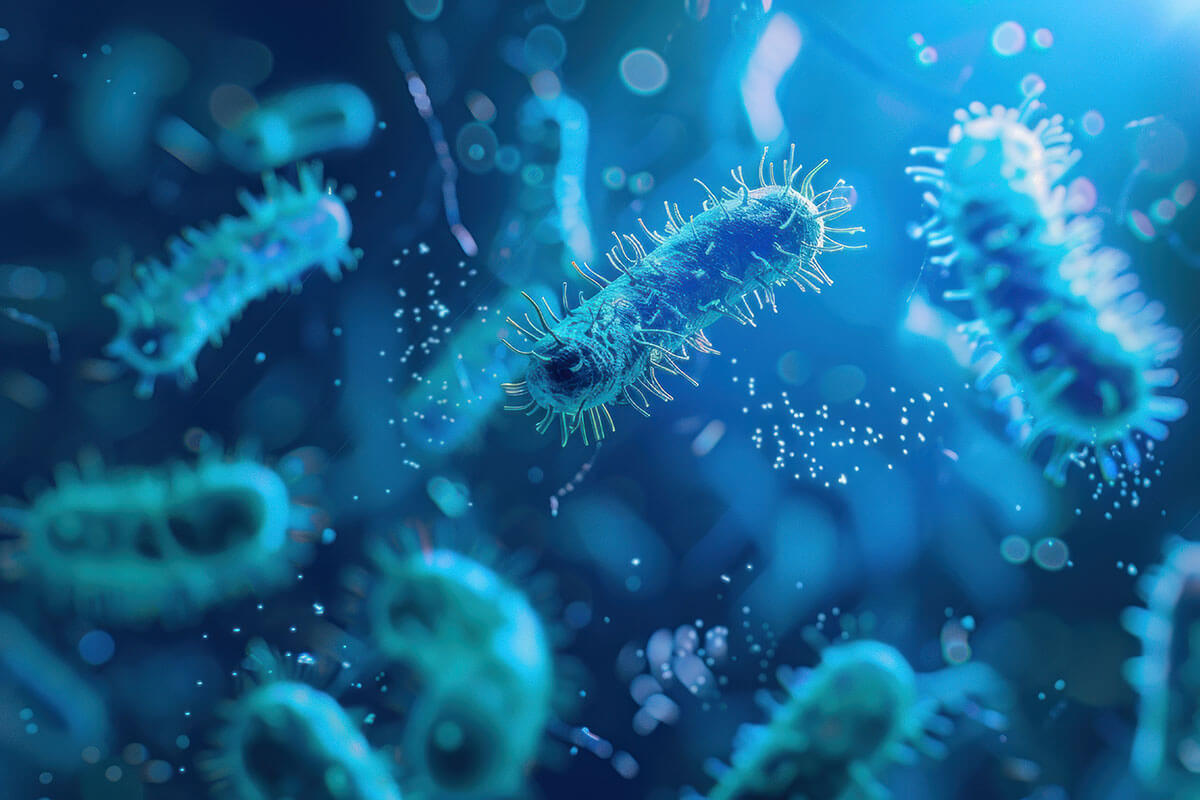Probiotics promote human health by inhibiting the growth of pathogenic bacteria.

Immune Health
Gut health strongly influences our immune system function.
THE GUT – IMMUNITY CONNEXION
In medicine, the immune system is the way of protecting the body against an infectious disease. Our body has several barriers to protect us from invading microorganisms, such as physical barriers (skin and mucous membranes), chemical barriers (the action of antimicrobial peptides and reactive oxygen species), and immune system responses (innate and specific adaptive immune response)(1).
In terms of bacterial strains, there is a distinct diversity among individuals. Each individual has his unique intestinal microflora, which is determined by host genotype, initial colonization through vertical transmission at birth, and dietary habits (1, 2). The function of probiotics is closely related to the species of microorganisms that colonize within the intestine. The interaction between probiotics and host cells as well as intestinal flora is a key factor which influences the host health. Probiotics have an impact on intestinal ecosystem by regulating gut mucosal immunity, by having interactions with commensal microflora or potentially harmful pathogens, by producing metabolites (such as short-chain fatty acids and bile acids), and by acting on host cells through signaling pathways.
Globally, data from seroprevalence studies suggests that less than 10% of those studied have been infected to COVID 19, meaning that the vast majority of the world’s population remains susceptible to this virus (WHO, 2021).
Probiotics promote human health by inhibiting the growth of pathogenic bacteria.
These mechanisms can contribute to the inhibition and elimination of potential pathogens, improvement of intestinal microenvironment, strengthening the intestinal barrier, attenuation of inflammation, and enhancement of antigen-specific immune response(3,4).
In other words, similar to gut commensal microbiota, consumed probiotics have been shown to positively affect the entire organism by improving digestion and immunity (5).
- (1) M. Chu, J. Ma, A. L. Prince, K. M. Antony, M. D. Seferovic, and K. M. Aagaard, “Maturation of the infant microbiome community structure and function across multiple body sites and in relation to mode of delivery,” Nature Medicine, vol. 23, no. 3, pp. 314–326, 2017.
- (2) A. Conlon and A. Bird, “+e impact of diet and lifestyle on gut microbiota and human health,” Nutrients, vol. 7, no. 1, pp. 17–44, 2014.
- (3) Markowiak and K. Sli ´ zewska, “Effects of probiotics, pre- ˙ biotics, and synbiotics on human health,” Nutrients, vol. 9, no. 9, p. 1021, 2017.
- (4) Lin and J. Zhang, “Role of intestinal microbiota and metabolites on gut homeostasis and human diseases,” BMC Immunology, vol. 18, no. 1, p. 2, 2017.
- (5) R. Pandey & Suresh. R. Naik & Babu. V. Vakil; Probiotics, prebiotics and synbiotics- a review; 2015.
